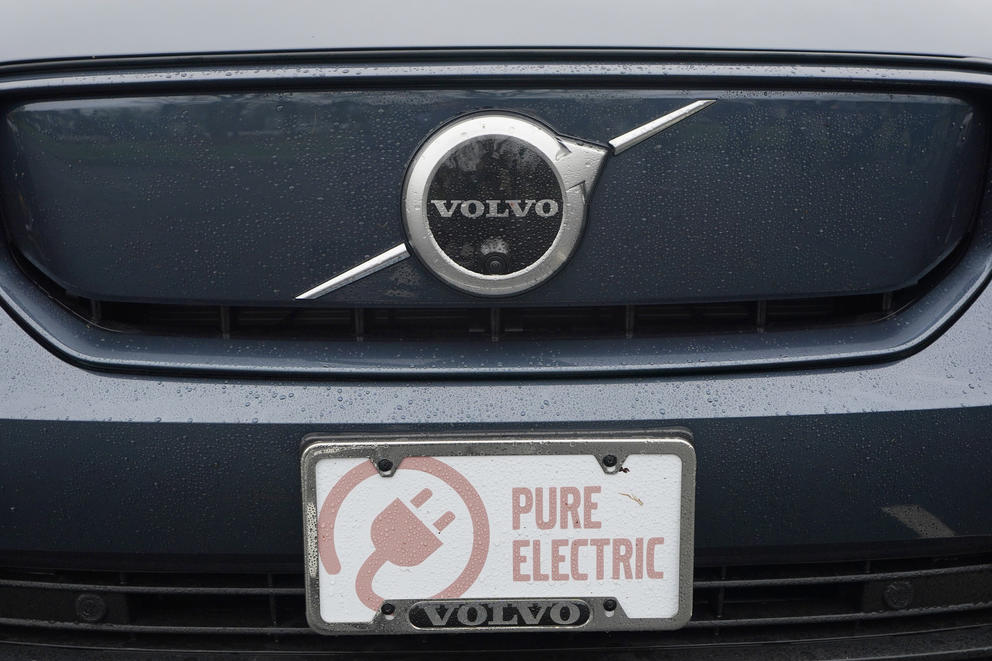Washington raises $2B in first year of carbon pollution auctions

A Volvo XC40 electric vehicle featured at a December 2021 news conference in Olympia where Gov. Jay Inslee announced several climate-related proposals for the 2022 legislative session, including a plan to offer rebates on the purchase of new and used electric vehicles for qualified buyers. (AP Photo/Ted S. Warren)
Washington raised another $370.6 million in its final carbon auction of 2023, bringing the total to slightly more than $2 billion in the first year of the state cap-and-invest program, the Ecology Department announced Wednesday.
Carbon-emitting corporations bid every three months on state allowances for the pollution emitted by their facilities. The winning bidders all pay the same price on those allowances after the auction. The “settlement” prices in the first few Washington auctions were $48.50 for roughly one metric ton of carbon for the first quarter of 2023; $56.01 for the second quarter; $63.03 for the third; and $51.89 for the December auction.
Of the total $2 billion raised through the program, $1.82 billion goes toward environmental investments and another $376 million will go to gas and electric utilities to help ratepayers, especially low-income families.
The cap-and-invest system passed by the Legislature in 2021 is aimed at decreasing carbon emissions to a small fraction of their current levels by 2050.
In addition to clean energy investments, the program has made driving gas-powered vehicles more expensive. It has raised Washington’s price at the pump from 15 to 50 cents per gallon, depending on who is calculating. Republicans have been slamming Gov. Jay Inslee over those increases and a conservative group has been gathering signatures to send an initiative to the Legislature to get Washington out of carbon pricing.
Washington has traditionally had some of the nation’s highest gas prices due to various geographical and economic factors outside of the cap-and-invest program.
For the program’s first two years, the Legislature appropriated $2.1 billion in cap-and-invest revenue for numerous climate mitigation projects. On Monday, Inslee said the state expects to collect $941 million in additional cap-and-invest money in the first half of 2024, bringing the overall income to roughly $3 billion over the system’s first 18 months and adding that much to be spent on climate projects.
Inslee’s supplemental budget request includes:
- A one-time $200 credit to the utility bills of roughly 750,000 low- and moderate-income households in Washington.
- Speeding the transition from diesel school buses to electric school buses across the state.
- Installing electric heat pumps in low-income multiple-family homes, replacing gas furnaces.
- Providing matching funds for competitive federal grants to bring clean-energy jobs to Washington.
- Converting a large diesel ferry into a hybrid fuel/electric ferry. As Washington’s ferries are breaking down in increasing numbers, Inslee also said on Monday that future cap-and-invest income could speed up replacing the old ferries with new hybrid ones.
CORRECTION: Fixes the amount raised in the most recent action and how it was distributed.
